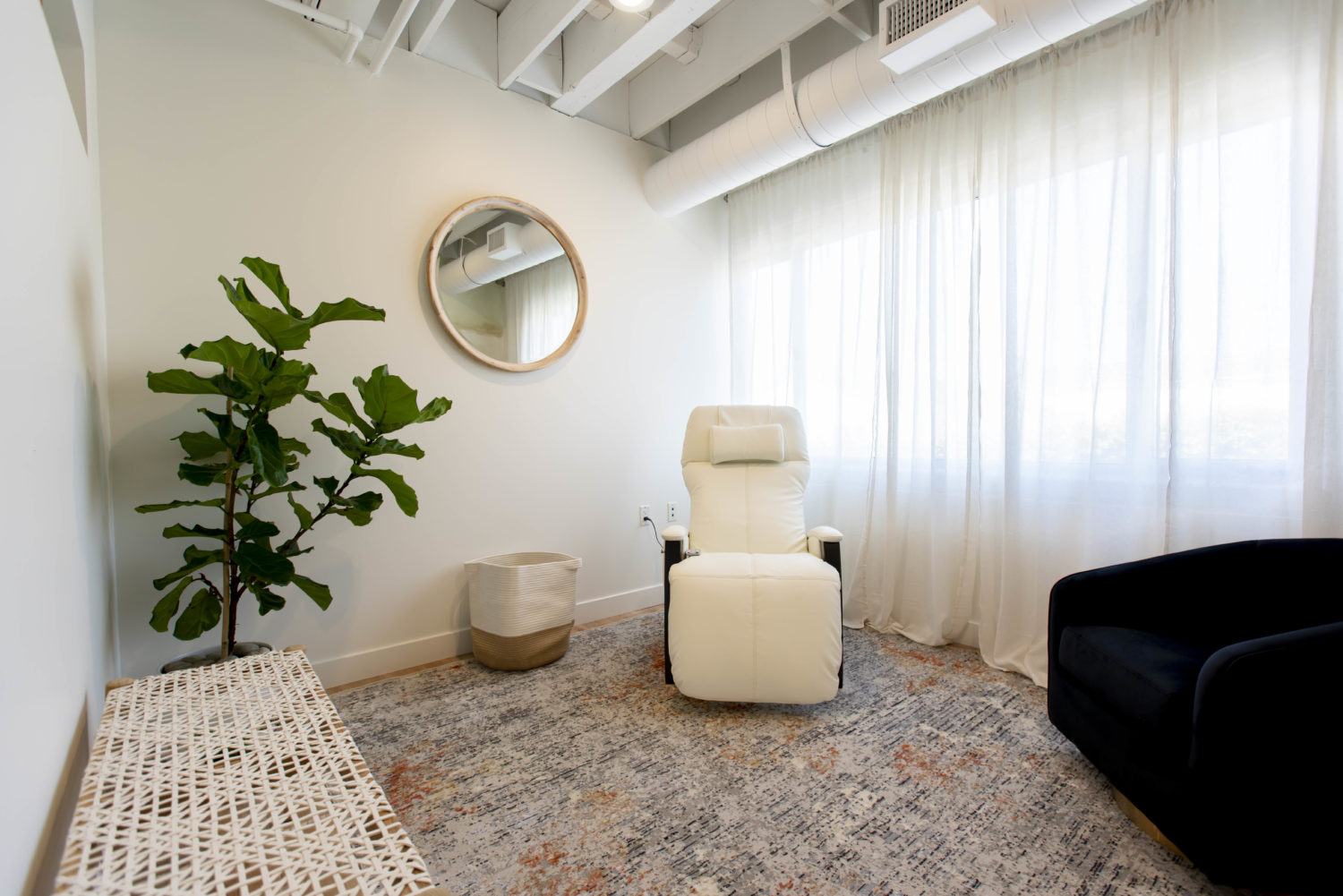As lockdown continues to put conversations about people’s mental health into the spotlight, Los Angeles-based opportunities to partake in psychedelic-assisted therapy are growing.
While the concept of ketamine-assisted therapy isn’t new in Los Angeles – ketamine Clinics Los Angeles say they’ve worked with over 2,000 patients in 10,000 sessions since opening their doors in 2014 – it’s still very cutting edge. But most Angelinos don’t even realize they’re living in a longtime incubator for the practice.
Weed was a bit more in your face. Just think about how many people had visited dispensaries by 2004 compared to the number that’s accessed ketamine therapy. But that also means there are plenty of people left to help. And like any industry poised for expansion, anyone doing it well would love to do it well in L.A.
Now, as the second generation of clinics starts to open across the nation and California, L.A. looks to be along for the ride on expansion.
Toronto-based Field Trip Health is looking to L.A. and New York City as their entry points into the burgeoning U.S. psychedelic-assisted therapy sector after successfully getting the ball rolling in Canada over the last couple of years. The company’s new Santa Monica clinic looks more like something out of a cosmopolitan Aladdin remake than a medical facility, but it’s certainly visually stunning. Which one might imagine is a lot more enjoyable than doing ketamine in a more purely traditional clinical setting.


Ronan Levy is one of the founders of Field Trip Health and currently serves as executive chairman. He said the team of Field Trip founders exited cannabis in early 2018 and founded the company after they saw the writing on the wall for where the discussions around psychedelic therapy were heading.
“Michael Pollan had just published How to Change Your Mind and MAPS had recently been given breakthrough therapy status, and I think Peter Thiel was just invested in Compass Pathways. And so that’s what we learned about what was going on and having built a business really scaling cannabis medicine in Canada it was kind of a natural stepping stone to get excited about psychedelics,” Levy told L.A. Weekly from Toronto.
Levy has now had a first-hand view of the formation of two completely separate industries with weed and psychedelic-assisted therapy. We asked what it’s like watching two industries create themselves and come into this normalization that allows them to be a thing?
“It’s been spectacular actually,” Levy replied. “I mean, I think cannabis laid a lot of the groundwork in another very different modality. I think cannabis really changed a lot of minds, a lot of attitudes. And so, the reception around psychedelics very significantly raised eyebrows very early on, but has been really quick to adoption. What excites me about that is not only the accelerated path to adoption but just the impact.”
Levy said what he saw with cannabis has been very significant from a health perspective and helped many people who have a better quality of their life because of it, even if they’re just using it for recreational purposes.

“You know it’s a lot better than drinking alcohol by and large. So cannabis, I think, has been doing great things in many respects, but our expectation for what psychedelics will do for many of the things that are ailing in the world are just so much higher,” Levy said. “So the impact we can have, it’s just that much greater.”
Levy and the team went to speak to the experts in the early goings. They knew they wanted to work with psychedelics and helping people but for months the answer to what exactly the opportunity would look like in the space would elude them. But as they talked to the great minds there was one running theme.
“Everybody said clinics clinics clinics, that’s where this opportunity is going to be in psychedelics because this is not something you do in most existing medical infrastructure, right?” Levy said. “You can’t go to a family doctor and expect him or her to administer psilocybin and have you hang out for six or eight hours while you go through the entire experience.”
Realizing the need for infrastructure proved reassuring to the group about their plan to get involved in the first place. Opening clinics was something they knew well.
“That really dovetails nicely with our experience in the cannabis industry where we built the largest network of cannabis specialized medical clinics in Canada. So we’re like, ‘Okay there’s a natural opportunity and something that naturally fits our skill set here,’” Levy said. “But then we realized that when it comes to psychedelics, the interplay between the drug and the experience is so important.”
Levy noted MDMA and psilocybin are fantastic molecules, but it doesn’t mean that they can’t be enhanced. Especially since both are very long experiences, making them clinically difficult to administer on a large scale basis.
“We realized that there was an opportunity for new products, so in addition to scaling out the clinical infrastructure we worked in tandem with that to start developing what we thought would be the next generation of psychedelic molecules or psychedelic products that we could develop. We could really perfect, to the extent possible, the interplay of the drug with the setting, the experience and the therapy,” he said.
We asked Levy about the regulatory aspects of getting a clinic like Field Trip Health open.
“The regulatory environment for that has existed basically since 1970,” he replied. “It was just in the last 15 years or so that people have recognized ketamine’s potential for a psychedelic accessory in treatment.”
So basically, since ketamine had already jumped through all the hoops of the U.S. medical regulatory infrastructure, once the therapeutic implications came to be known, it was a lot easier to start acting on those therapeutic implications because they’d already been proven safe at scale for 30 years?

“That’s exactly right,” Levy replied. “You know, we had heard about ketamine being used in a mental health context and that’s actually where we got started. When we realized that ketamine is actually a dissociative psychedelic and it was starting to be used with an increasing frequency as a treatment for mental health. We saw this first sort of stepping stone.”
A typical program for someone depressed, which is certainly the most common call that Field Trip gets, is six ketamine exploratory sessions over a few weeks interspersed by three to four integration sessions.
The exploratory sessions are when you’re actually dosed via intramuscular injections. You’ll end up being on the trip for about two hours. Immediately after the experience, you’ll have a very light touch therapy session.
“It’s really designed to help document and start helping people to process and understand what they just experienced,” Levy explained. “So you do two exploratory sessions ideally within one week and early the following week you would do an integration session. You do that three times over the course of treatment.”
The integration session is more focused on conventional cognitive behavioral therapy techniques. Levy explained that has to do with a period of neuroplasticity after a psychedelic experience where people actually seem more receptive both on a psychological and neurological basis. That’s when they find it easier to create a ‘How to Change’ outlook mindset change.”
The exploratory sessions are essentially like warming up the clay before you work with it. Levy said after you’ve warmed up the clay in your hand, it’s easier to move them to your design.
“And in some ways, that’s how people’s psyches are after an experience on psychedelics and so the effects of the cognitive behavioral therapy seem to have more impact than you could get there with just cognitive behavioral therapy without drugs,” Levy said. “It just takes a lot longer to get there. So the psychedelic experience is really facilitating that path and expediting it.”
We asked Levy what he says to the haters that say random wooks without depression or a ketamine-treatable condition are just going to come in for a good time.

“Well, I mean, to the haters who may say that’s a significant concern, that’s why we have such a robust screening process. That’s why we screen patients,” Levy retorted. “From the moment intake starts there’s the psychiatric consultation, there’s another consultation with a physician, you have an appointment with a therapist. You know we focused on doing this the right way.”
A big part of the ethos is doing it the right way early in the evolution of the development of psychedelic therapies will help drive mainstream adoption. Levy argues the next phase is to get broader acceptance from the medical community while showing that they’re doing it prudently and thoughtfully. “And showing people that this isn’t a Venice Beach doctor who you pay $50 and they’ll write your recommendation,” Levy said. “It’s funny but it’s true.”
We asked Levy how long he thought it would be until Field Trip Health would be able to use other psychedelic substances in addition to ketamine.
“MDMA will be available in the next few years on an FDA approved basis,” he replied. “In the same timeframe in the state of Oregon. Ideally, subject to navigating the federal state legality issues and all that kind of stuff, we’ll be working with psilocybin in Oregon as well. … It’s probably two years before we’re using MDMA or psilocybin on a general patient basis.”
Levy closed with his favorite baseball analogy, saying the entire psychedelic-assisted therapy space is just in the batter’s box.
Advertising disclosure: We may receive compensation for some of the links in our stories. Thank you for supporting LA Weekly and our advertisers.

